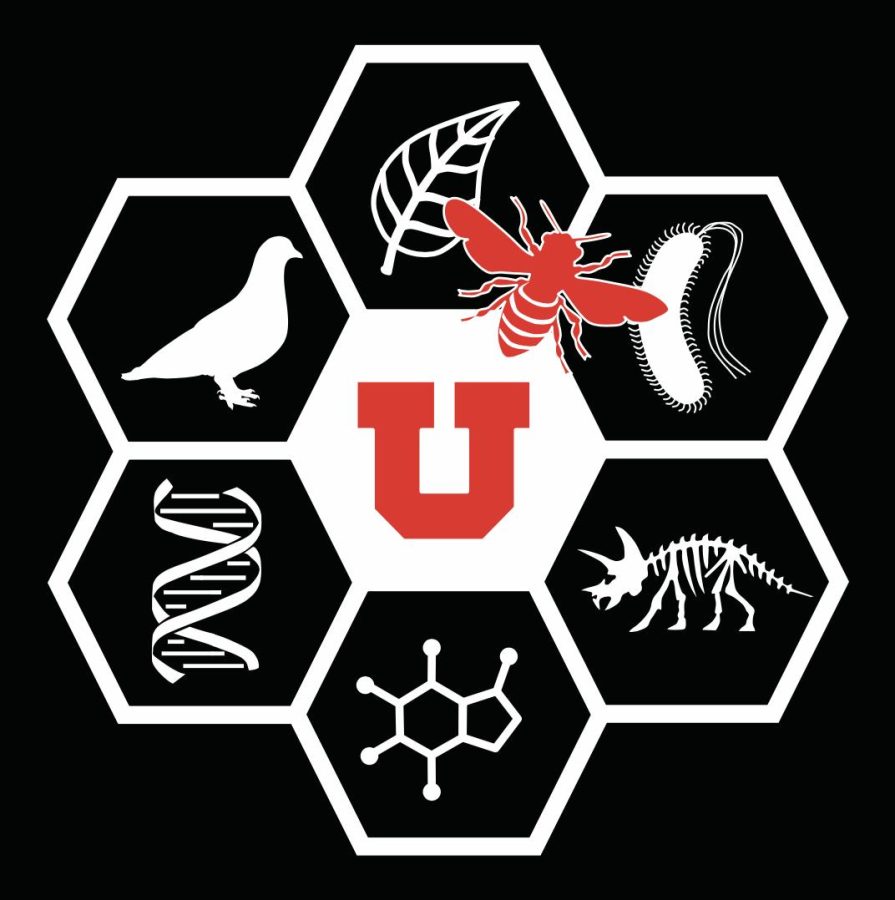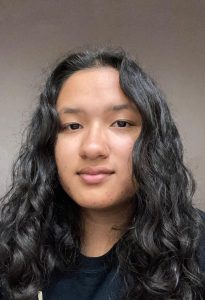Graduate Student Researchers as ‘Foundations of Scientific Knowledge’
March 29, 2022
There are 8,033 students enrolled in graduate programs at the University of Utah. While undergraduate students may interact with them as teaching assistants or instructors, outside the classroom, they are probably doing research.
The Journey to the Lab
Purna Post-Leon and Jaycie Fickle are first- and second-year graduate students in the School of Biological Sciences, conducting research in the Anderegg Lab with William Anderegg as their advisor.
The lab’s work revolves around how forests will be impacted by climate change-related stressors.
Fickle’s project is centered on the aging of xylem — the “plumbing system” of plants — and how it is affected by drought. She is studying this in Aspen trees, a species which Fickle said has been hard-hit by drought in the western United States.
Though she is not as far along in her research, being a first-year grad student, Post-Leon hopes to explore the effects of serious heat events such as fires on plants. Tucked away in a growth chamber on the roof of the South Biology building — an area hosting an array of plants in ongoing experiments — are Post-Leon’s ponderosa pine seedlings, waiting to be “tortured” for her project.
“When you have a serious heat event, it can cause similar effects and similar damages as a severe drought event,” Post-Leon said. “[The plants] are super cute and I love them, but I’m going to torture them this fall. I will be exposing them to different drought treatments and fire treatment … and then to smoke.”
Fickle, who completed her undergraduate and graduate degrees at California State University, Bakersfield prior to pursuing her Ph.D. at the U, said she initially wanted to become a large-animal veterinarian, having grown up in a rural area highly influenced by agriculture.
“I am from a part of California that’s very agriculture and oil based,” Fickle said. “In high school, I was in the Future Farmers of America … I wanted to do work with horses and cattle. I thought I was going to be working on a dairy farm the rest of my life.”
She said it was a professor noticing her interest in a plant biology class — a required part of her undergraduate curriculum — that introduced her to the world of research in ecology. She began doing research as an undergraduate student for the professor, stayed in California to complete her master’s degree and applied to Ph.D. programs as a requirement for her grant, which eventually led her to the U.
“My professor was like, ‘Hey, you seem interested in this class. Do you want to do research in my lab?’” Fickle said. “I stayed in the lab until I graduated, and I didn’t really know what else I wanted to do, but I liked doing research, so I stayed and did my master’s in that lab.”
Post-Leon also had experience doing research as an undergraduate student at Reed College in Portland, Oregon. She said the professor she worked with sparked her initial interest in the field of ecology.
“My undergraduate advisor was really encouraging and a really wonderful person to work for, and his work on wildfire and drought in California and the Pacific Northwest got me really interested in that,” Post-Leon said.
The Ins and Outs of Grad School
As graduate students applying to ecology programs, both Fickle and Post-Leon had to identify a specific lab and mentor during their grad school search. In other disciplines, students may apply to a program and rotate through different labs before settling on one.
“Ours is, I guess, the more old school way of doing it, but basically you contact a potential mentor whose work you’re interested in beforehand, you meet and talk to them kind of informally, and then you apply and generally there’s a space to list a mentor,” Post-Leon said. “Then, if the admissions committee likes you enough, you make it to an interview round.”
Post-Leon said the interview stage involved meeting with her potential advisor again as well as other graduate students and postdocs in the lab, then meeting with other professors in the department. The final decision came a couple weeks later.
Though graduate school applications appear similar to college applications in the information they require, such as essays and letters of recommendation, Fickle said a graduate school application is more like a job application, and can be a longer process.
“You have to start a year before,” Fickle said. “You have to find what professors interest you, you have to reach out to them, email them and be like, ‘Hey, are you interested in taking a student? Do you have space? Here’s what I do. Here’s my CV.’”
The process of finding your own project as a grad student, Post-Leon said, really depends on the lab. She said in her case, Anderegg immediately encouraged her to create her own.
“I know some other people in my cohort are working on lab projects to start with, and then will make the transition to their own independent research project next year,” Post-Leon said. “Bill really lets you build your own projects, so he came in and we met and he was like, ‘What do you want to do?’ And I was like, ‘I have this idea.’ And then we drew it up on the whiteboard.”
In terms of the structure of graduate school, Post-Leon said her first year is focused mostly on a required set of classes and planning for independent research with regular meetings with her advisor. Grad students are also required to be a TA for at least one semester, which pays for their tuition before they are paid by their advisor’s funding.
At the end of their first year, grad students like Post-Leon will have to discuss their potential projects with a small committee that includes three professors from their department, one of which is the student’s advisor.
Fickle said the grad school experience becomes more focused on research as it goes on, and also includes mentoring undergraduates who join the lab. The end of the second year also includes a qualifying exam, in which students write a proposal of their three projects — one for each of the three chapters required for a Ph.D. — and defend it to a committee of professors.
For someone like Fickle who is coming into the program with a master’s, Ph.D. programs guarantee funding, which means tuition and a stipend, for four years. For those who have not completed a master’s beforehand, funding is guaranteed for five years.
Cohorts, Mentors and ‘Co-Explorers’
Fickle said it can be hard at certain points in a graduate school program to maintain a work-life balance, but her schedule is dictated by the nature of her research.
“It depends on the lab you’re in because ours is really based on the seasons because we work on trees,” Fickle said. “In the summer I have no work-life balance, I’m working 70-80 hours a week.”
Post-Leon said despite this, grad students at the U tend to find time to enjoy themselves too.
“I feel like almost every person I talk to gets the chance to go out and do things like hike or ski,” Post-Leon said.
Cohorts of students in grad school programs tend to run small. Fickle is part of a nine-student cohort, while Post-Leon’s includes four students.
“My cohort saved my butt with taking some of those programming classes,” Fickle said. “The first year you’re really close with your cohort because you’re taking classes with them.”
Professor Anderegg says graduate students are integral to the research at his lab and to the research that goes on at the College of Science as a whole.
“Graduate students are really just … the backbone of the lab,” Anderegg said. “Graduate students are an enormous engine of research and creativity and discoveries at the U, so they’re really one of the foundations of scientific knowledge.”
Anderegg said they are also crucial to the educational mission of the College of Science, helping to train and mentor undergraduate students in classrooms and in labs.
“They TA courses and help undergraduates learn and grow, and in these research labs they’re also really key mentors,” Anderegg said. “They can help mentor and guide undergraduate students and that’s good training for them to learn how to mentor effectively so it’s a win-win. They’re just completely indispensable.”
As a professor, mentoring graduate students is also an important part of his job.
“By the end of the Ph.D., the goal is to have trained somebody who’s a fantastic scientist and a colleague, so I try to think of my graduate students as colleagues, and we’re all kind of co-explorers in understanding how the world works,” Anderegg said.
Post-Leon said being a graduate student is something she truly enjoys, and frustrating moments while doing research are made up for by the satisfaction when things go right.
“Sometimes I find it kind of frustrating, but sometimes there’s just satisfaction figuring out a problem, or I really like analyzing data, which is super nerdy,” Post-Leon said. “I love it, I love being able to look at my data and know what that means and being able to connect it to the big picture.”








